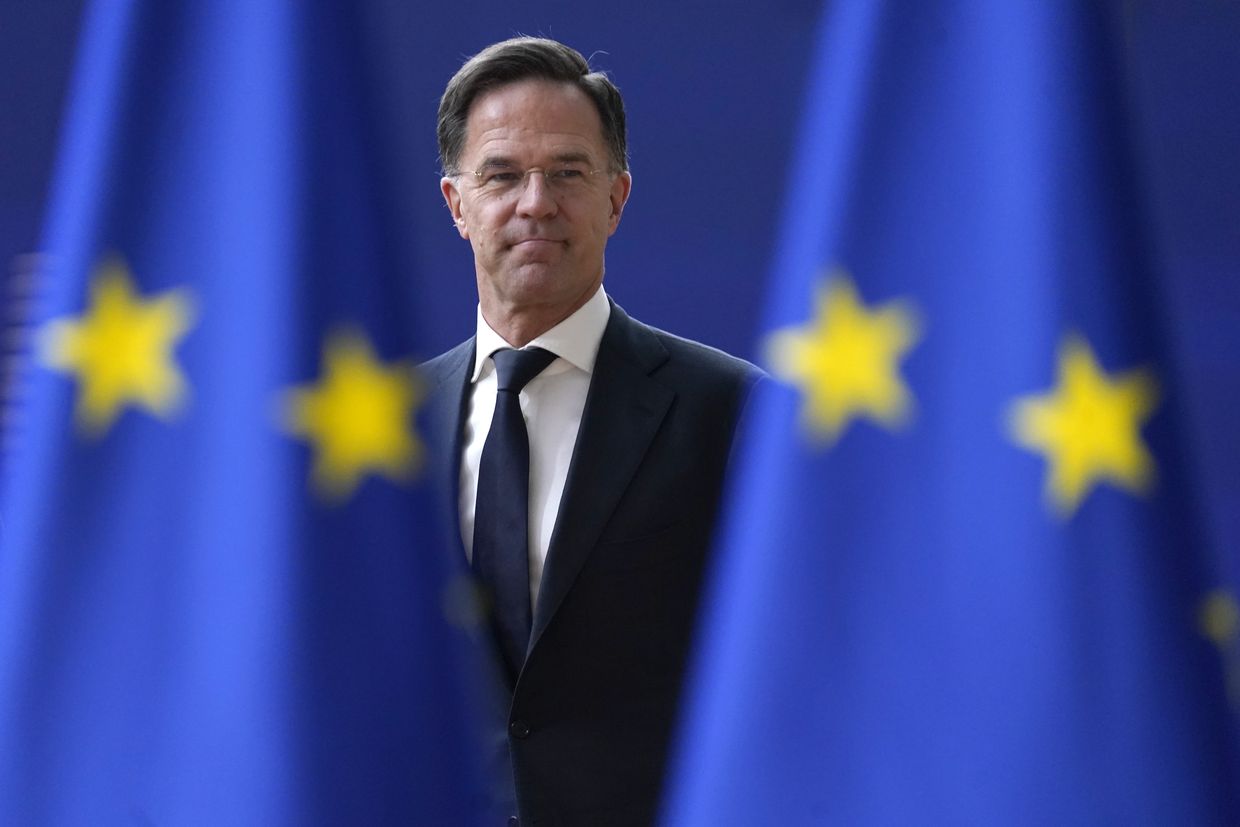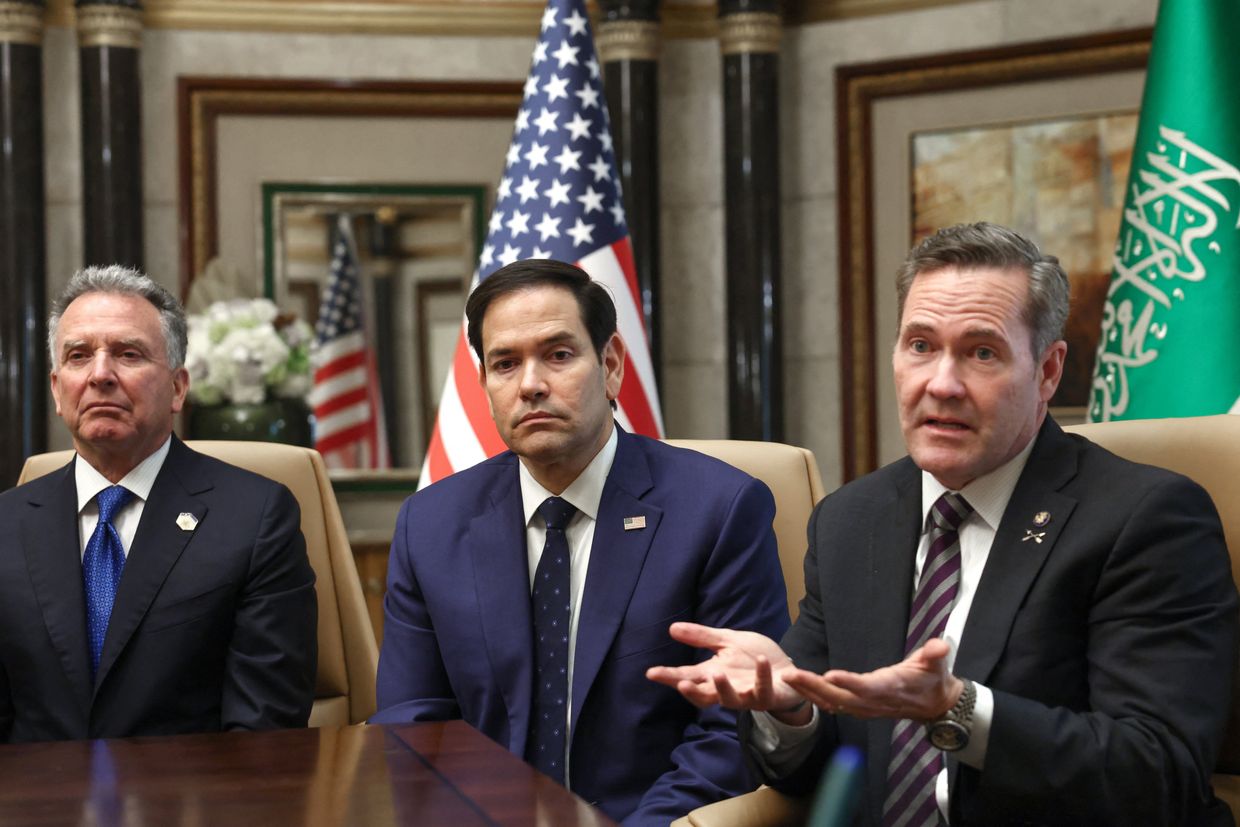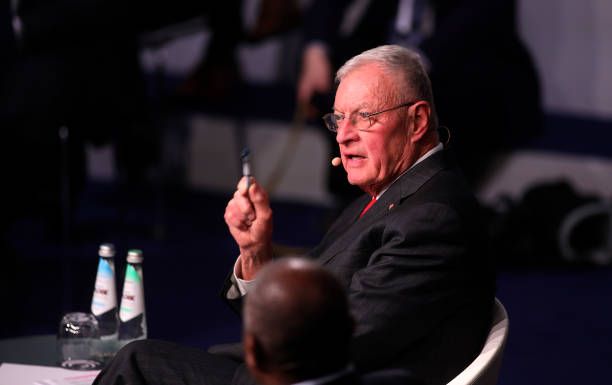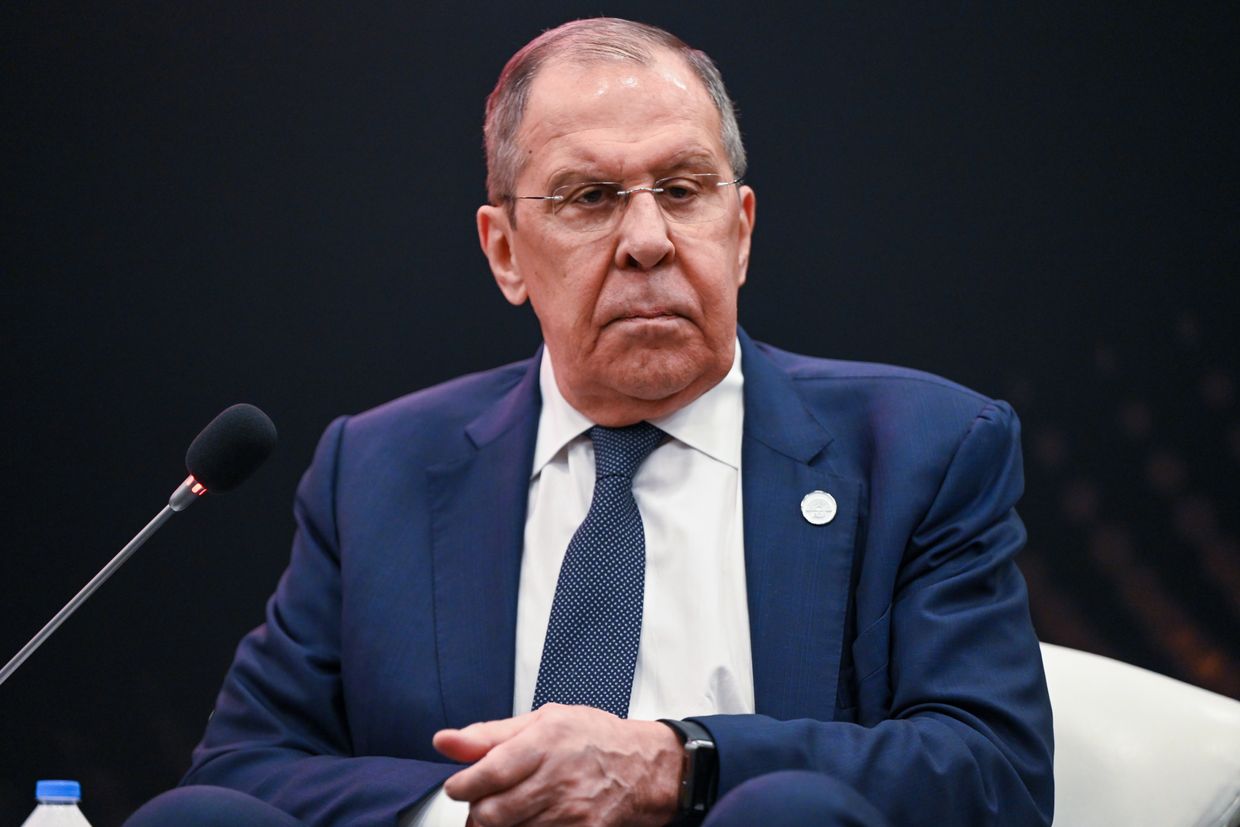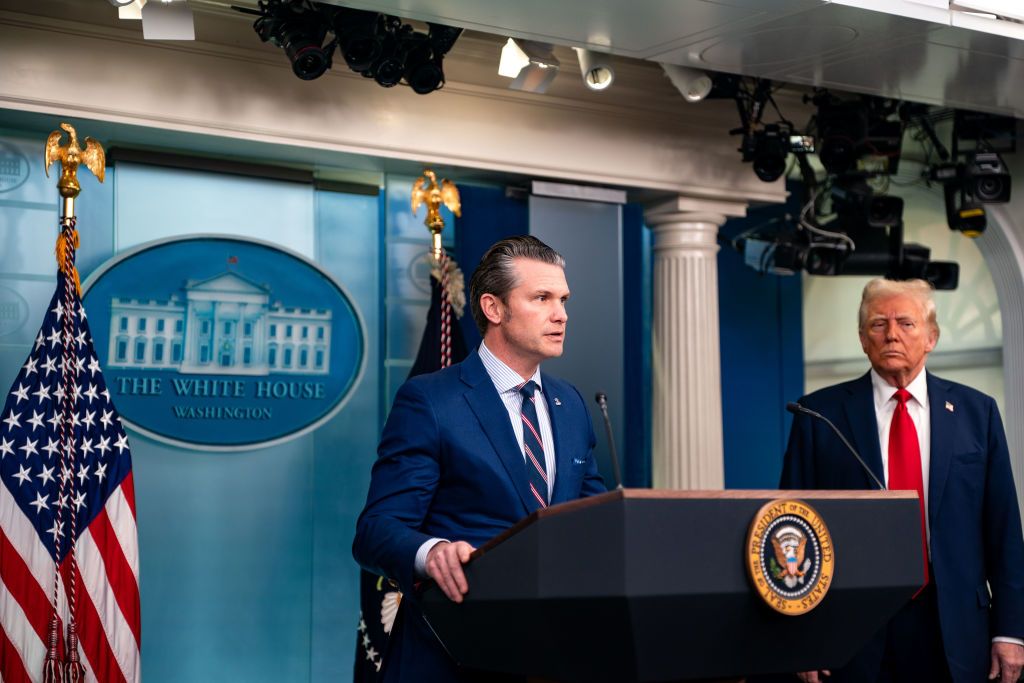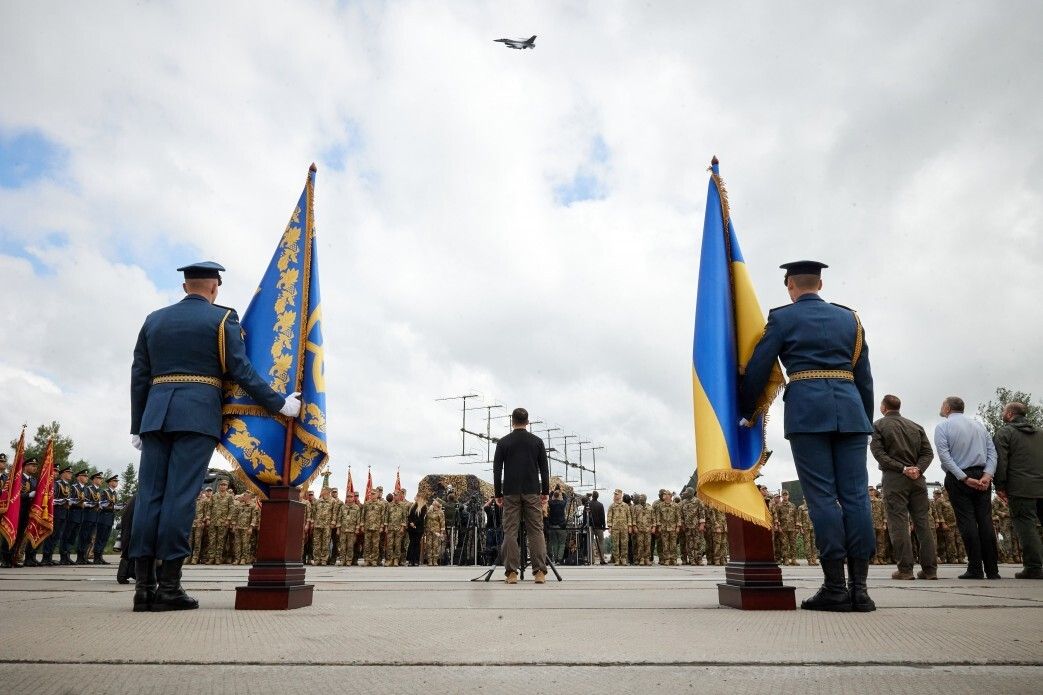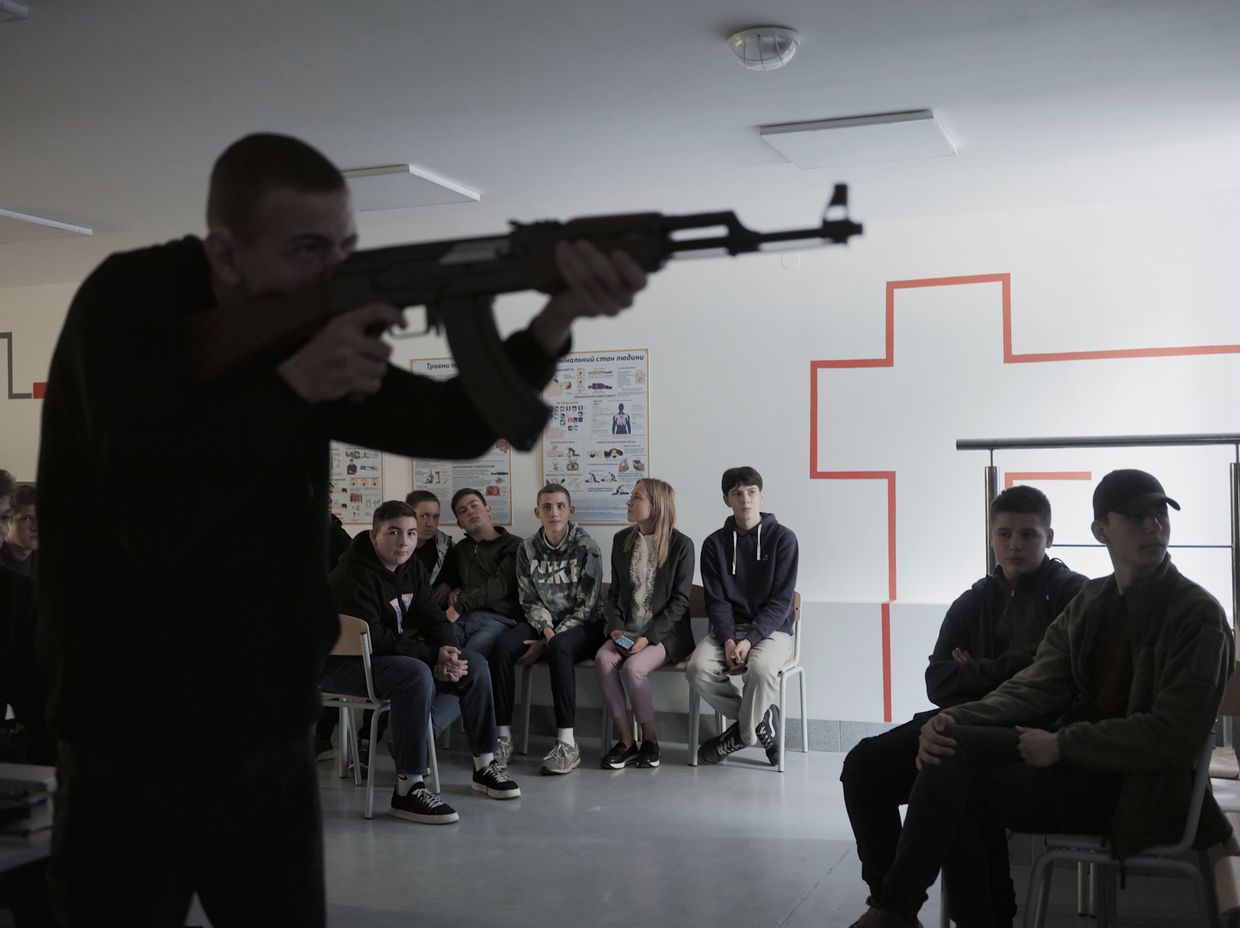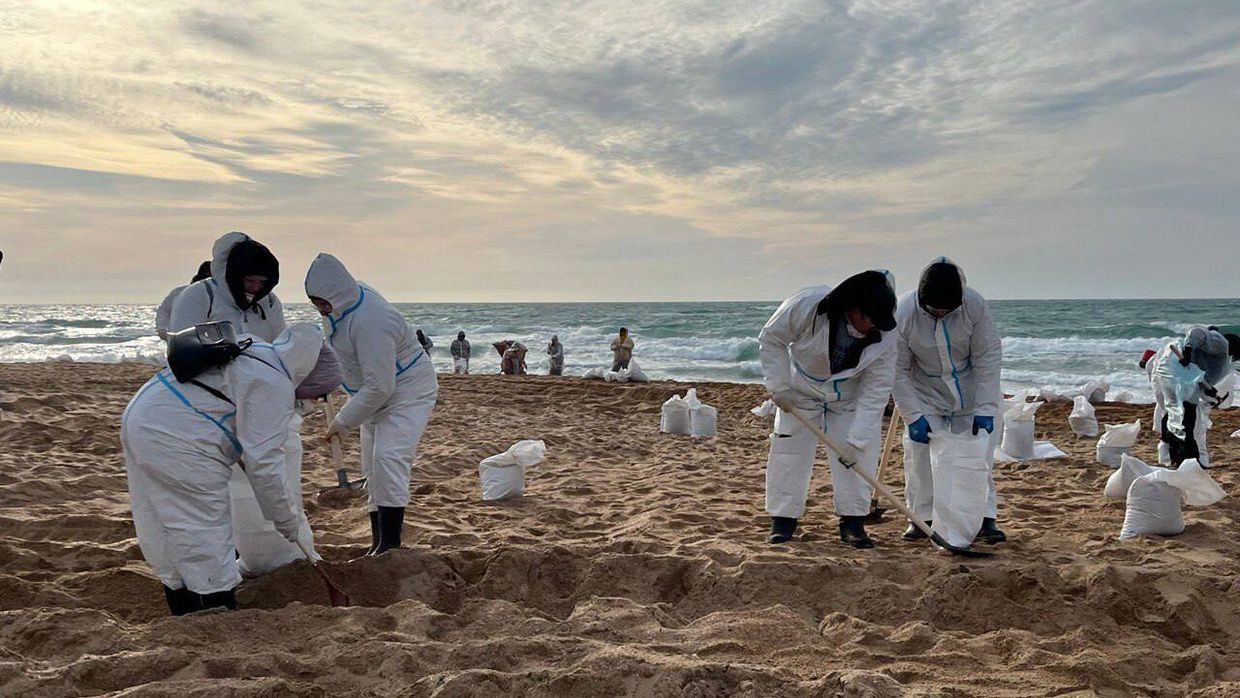Kyiv and Warsaw have agreed to form and jointly train a new army brigade on Polish soil, betting the initiative could help recruit some of the scores of Ukrainian men living in Poland and other EU countries.
The so-called Ukrainian Legion, a fresh initiative to boost Ukraine’s military manpower more than two years into Russia’s full-scale invasion, will be the first army formation to recruit Ukrainian volunteer fighters from abroad — including those who fled across the border to avoid being drafted to fight in the war and long-time Ukrainian residents of other countries.
Formation of the Ukrainian Legion, whose troops will be sent to fight in Ukraine against Russia’s invading forces following boot camp, is a key element of a bilateral security agreement inked on July 8 between Ukraine’s President Volodymyr Zelensky and Polish Prime Minister Donald Tusk.
"The Ukrainian Legion will train in Poland and be equipped with the help of our partners. Every Ukrainian citizen who decides to join the Legion will be able to sign a contract with the Armed Forces of Ukraine," Zelensky said at the time with Tusk at his side.
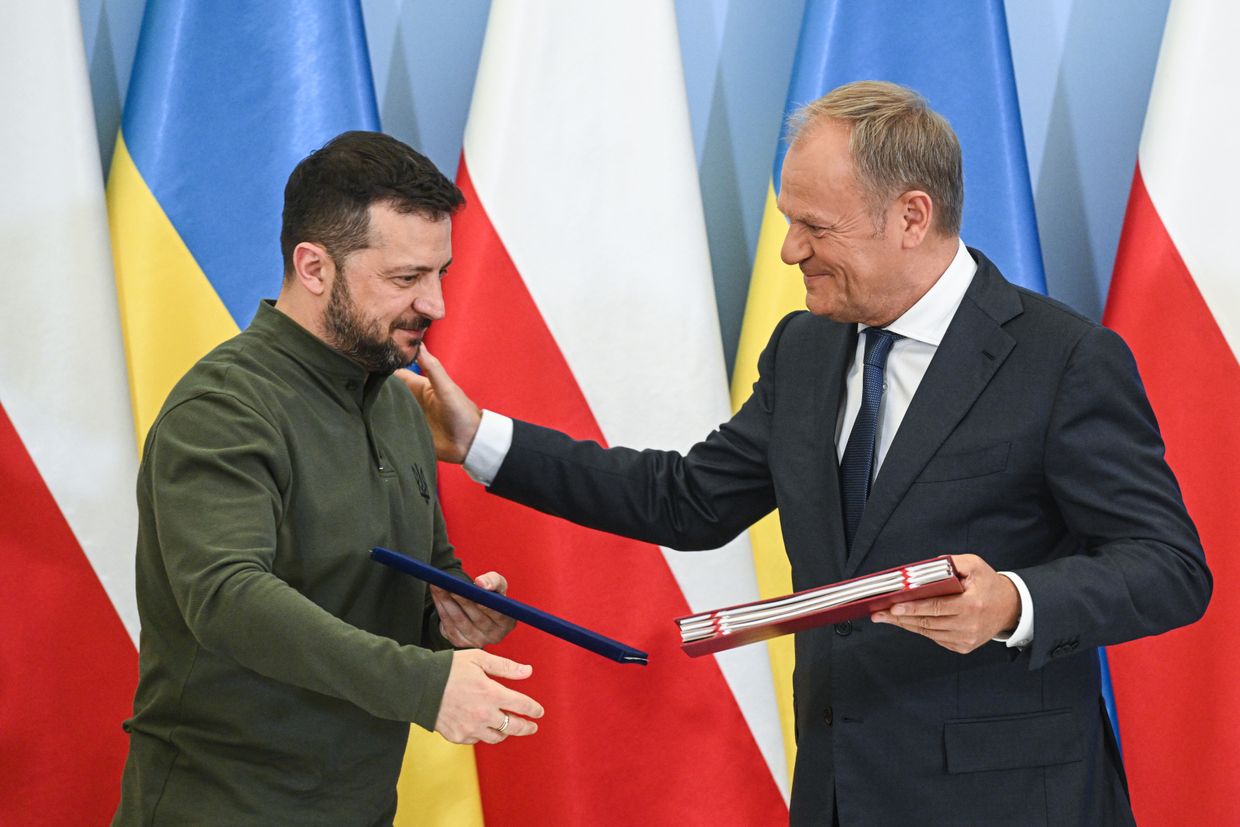
Yet details about the legion’s formation, including how Ukrainians abroad could enlist, have been scarce.
Its formation comes as Ukraine, which recently reformed its domestic army mobilization efforts, faces a manpower shortage as Russia continues to advance in multiple sectors of the front line. Kyiv has been discussing for months with foreign partners the possibility of returning thousands of draft-eligible Ukrainians who fled the country.
Experts believe that, if executed correctly, the Ukrainian Legion could significantly reinforce exhausted troops and encourage other European countries to support the initiative or copy it by establishing domestic training programs on their own turn aimed at enlisting Ukrainian men abroad.
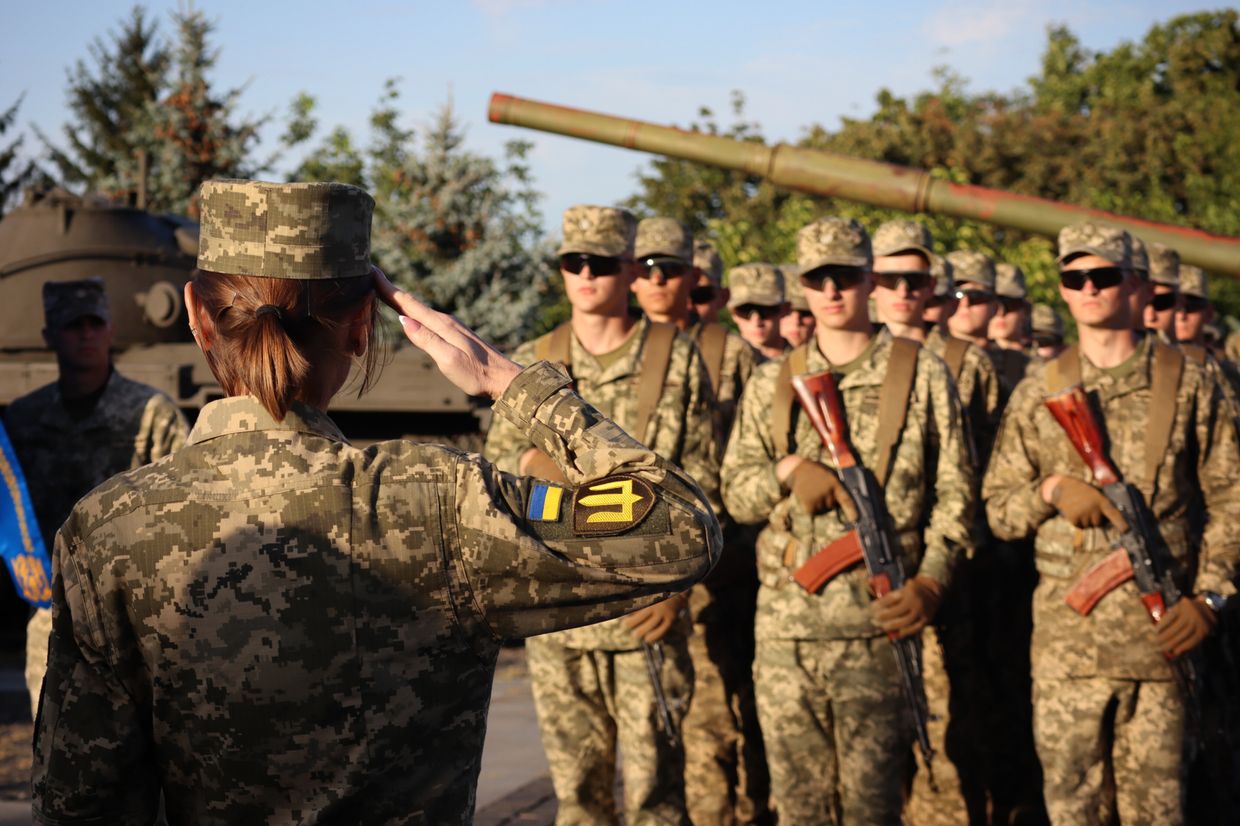
Why is the Ukrainian Legion needed now?
Hundreds of thousands of Ukrainians rushed to enlist in the country’s armed forces in the first months after Russia unleashed a full-blown invasion early in 2022, but more than two years on, the flow of volunteers has dwindled. Ukrainian authorities are desperately trying to find ways to boost military manpower to compensate for losses and give troops exhausted by more than two years of combat a rest.
Earlier this year, Kyiv intensified discussions with allies that started at least in 2023 about ways to return military-eligible men who left the country during the war, sometimes illegally. The BBC estimated in November 2023 that about 650,000 military-age Ukrainian men had left for the EU since the invasion began.
Polish Defense Minister Wladyslaw Kosiniak-Kamysz said in April that Poland would help Ukraine bring its draft-aged men back, while Polish Foreign Minister Radoslaw Sikorski called the move “ethically ambiguous,” adding that Kyiv would have to "take the initiative" in the process.
Konrad Muzyka, a defense analyst focusing on Russia and Belarus and the head of Rochan Consulting, told the Kyiv Independent that the creation of the Ukrainian Legion indicates that Ukrainian authorities have opted for “a more benign and encouraging" approach.
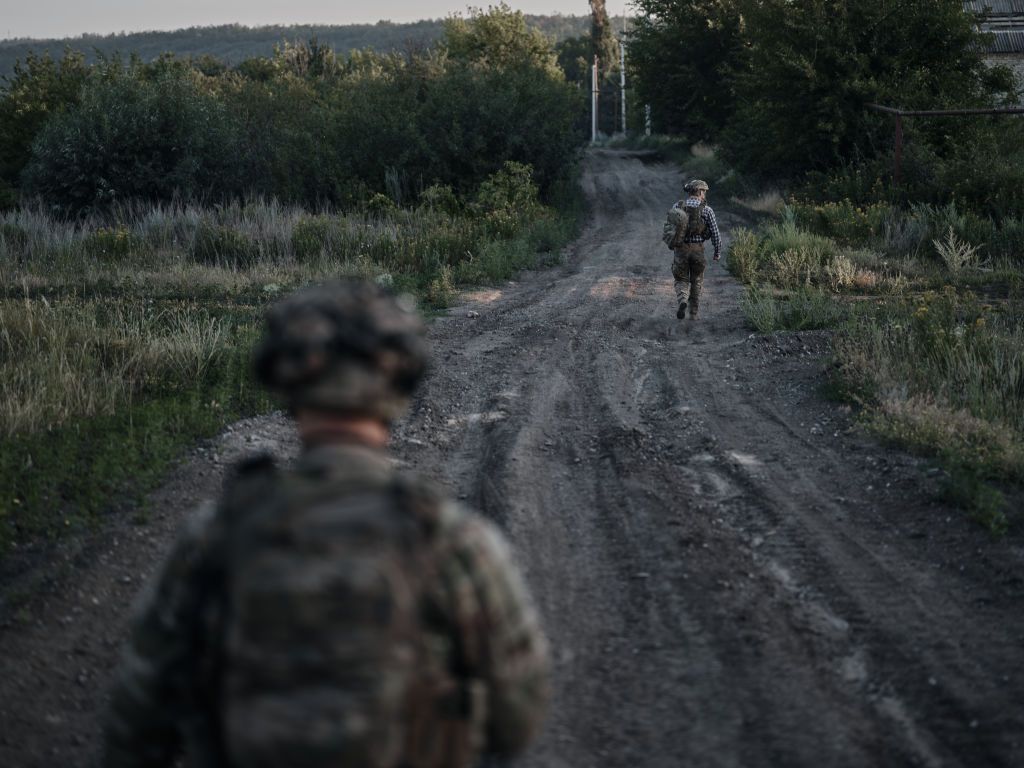
The Legion promises future fighters high-quality training in line with Western standards and the right to return to their families in Europe after rotations. Ukrainian men aged 18-60 are generally forbidden to leave the country under martial law, with some exceptions.
The training pledge looks especially appealing, as current military training in Ukraine is “not ideal" in duration and quality, Muzyka said. “There are also some deficiencies when it comes to more specialized training and interoperability training at the brigade level,” Muzyka added.
Zelensky said on July 15 that Ukraine doesn’t have enough training facilities for new soldiers arriving as part of a new mobilization campaign.
Oleh Cherkashyn, a Ukrainian who has lived in Slovakia since 2019, told the Kyiv Independent that he plans to join the Ukrainian Legion to avoid feeling “ashamed.”
When asked why he chose the Ukrainian Legion over joining a standard military unit based in Ukraine, Cherkashyn said he hoped European instructors would “increase efficiency and reduce possible losses.”
“I believe that these issues have not been given due attention in Ukraine,” he said, quipping that Ukraine currently prioritizes boosting the number of troops over the quality of their training.
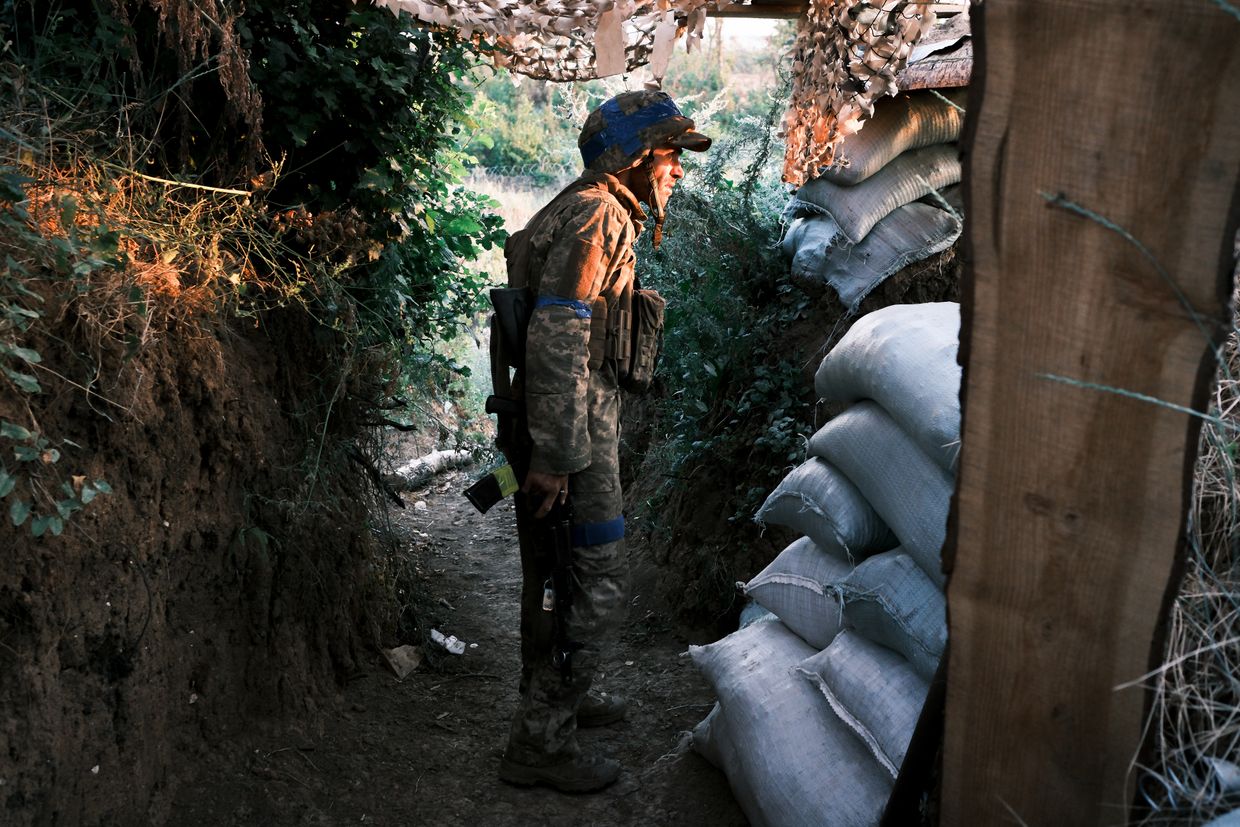
How will the legion recruit and train?
It is still unclear if recruitment for the Ukrainian Legion has begun or how to join.
However, several days after Zelensky's announcement, Polish media outlet RMF FM reported, citing anonymous sources in Ukrainian diplomatic institutions in Poland, that hundreds of Ukrainians in Poland expressed interest in joining. At the NATO summit in Washington on the same day, Poland’s foreign minister Radoslaw Sikorski mentioned that "several thousand" Ukrainians in Poland have registered to "join the draft."
Upon the Kyiv Independent's request to the Polish Foreign Ministry to clarify whether Sikorski's statement referred to volunteers for the Ukrainian Legion or those who updated their military data at the consulates as required by the recent mobilization law, the ministry reshared Sikorski's quotes but didn't provide clarifications.
Poland's Deputy Defense Minister Paweł Zalewski told Polskie Radio on July 19 that Ukrainian consulates in Poland would assist with recruitment. In a comment for the Kyiv Independent, Ukraine's Embassy in Poland said on July 26 that it was still determining the recruitment procedure and would soon start an information campaign on how to join the legion.
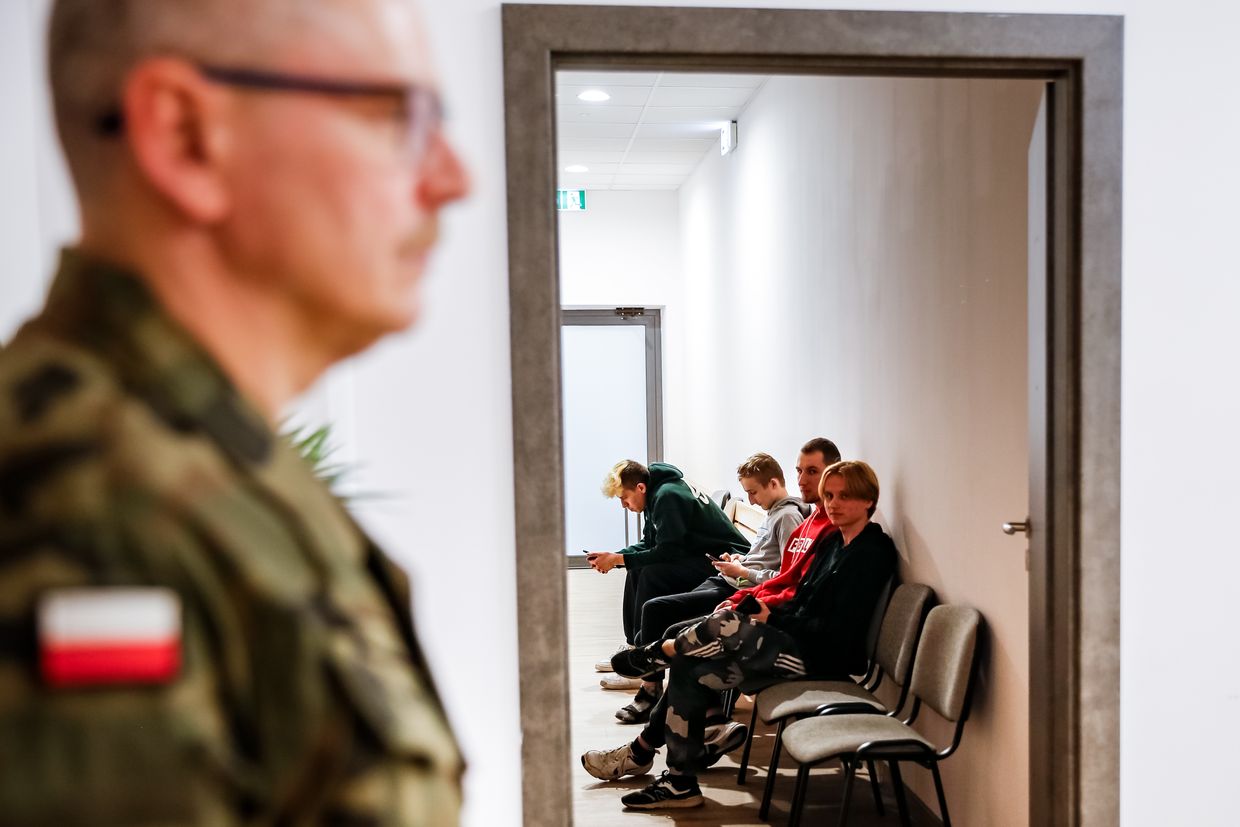
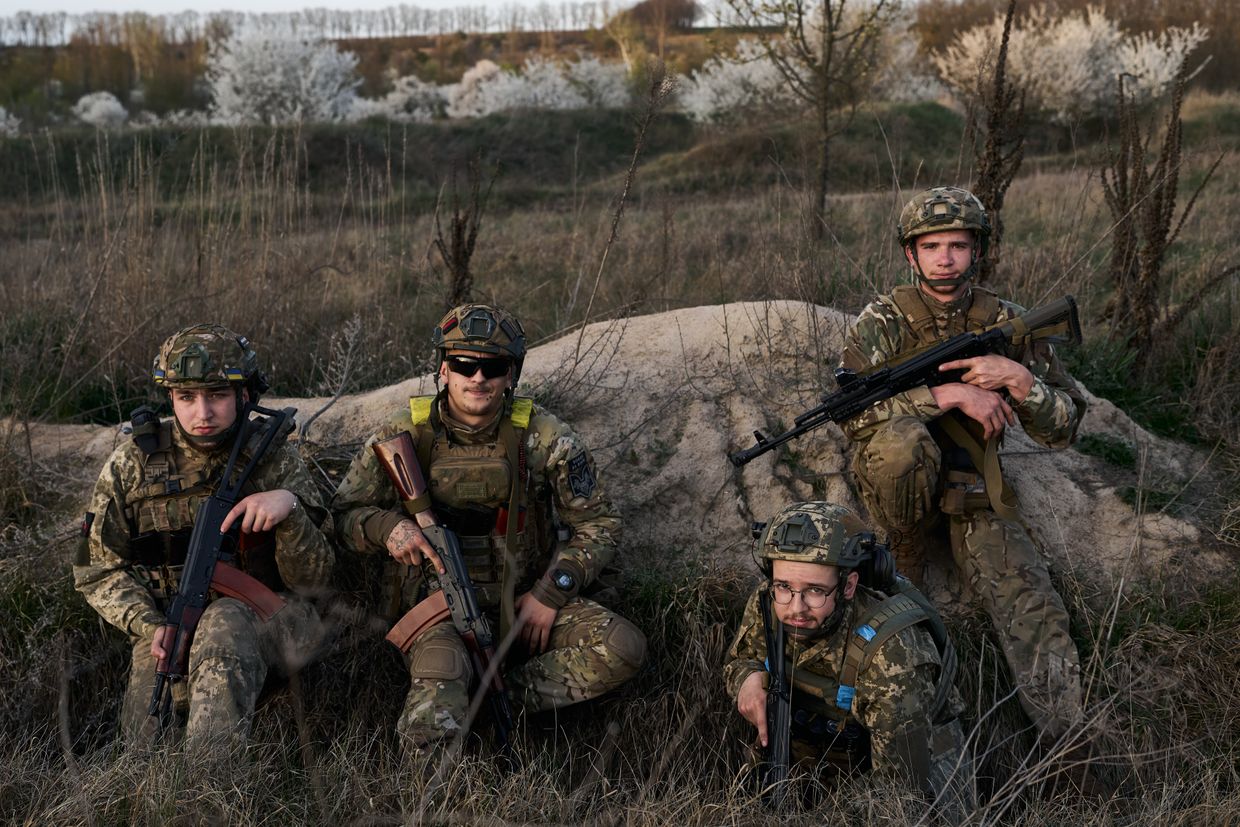
The Polish Defense Ministry said in an email to the Kyiv Independent on July 18 that Ukraine will manage recruitment to the Ukrainian Legion, with the scope of Poland's involvement in the project still under discussion. The Ukrainian Defense Ministry refused to comment on the Ukrainian Legion and said it would provide more details publicly soon.
Poland has trained over 20,000 Ukrainian soldiers since the start of the full-scale invasion, and the Ukrainian Legion is a logical "next step" for one of Kyiv's biggest allies, said Ray Wojcik, a retired U.S. Army Colonel and former Military Attaché at the U.S. Embassy in Warsaw.
According to the Polish Defense Ministry, the Ukrainian Legion's training will draw on Poland's experience from the EU training mission, EUMAM Ukraine. Poland is the only former Warsaw Pact nation in NATO with significant capabilities in training large combat formations like brigades and divisions, Wojcik told the Kyiv Independent.
According to Zelensky, the legion's formation will build on the experience of the Lithuanian-Polish-Ukrainian brigade, created in 2009 to support regional military cooperation.
The brigade, which Wojcik believes "should be potentially leading" the efforts, refused to comment on the matter in a comment to the Kyiv Independent.
Legion members will likely undergo 4-5 months of basic, specialist, and cohesive training in Poland, said Muzyka. Once the unit arrives on the battlefield, "it should have a smaller casualty rate and be more proficient in combat,” he added.
Potential challenges
Ukrainian military expert Mykola Bielieskov argued that even experienced Polish instructors will face a “universal challenge” of providing “high-quality training that would meet the requirements of modern warfare and our battlefield… both with fighters and commanders.”
The effectiveness of the Ukrainian Legion will also depend on the equipment they receive, the source of which is still unclear. Muzyka doubts Poland's ability to fully equip a brigade with mechanized or motorized gear due to the substantial supplies it has already sent to Ukraine.
According to sources quoted by the Polish media outlet RMF FM, local authorities are in talks with other EU members about contributing funds to finance the training and equipment. Wojcik believes that Poland's efforts to enhance defense cooperation with Germany could lead to Berlin joining in training and equipping Ukrainian Legion fighters.
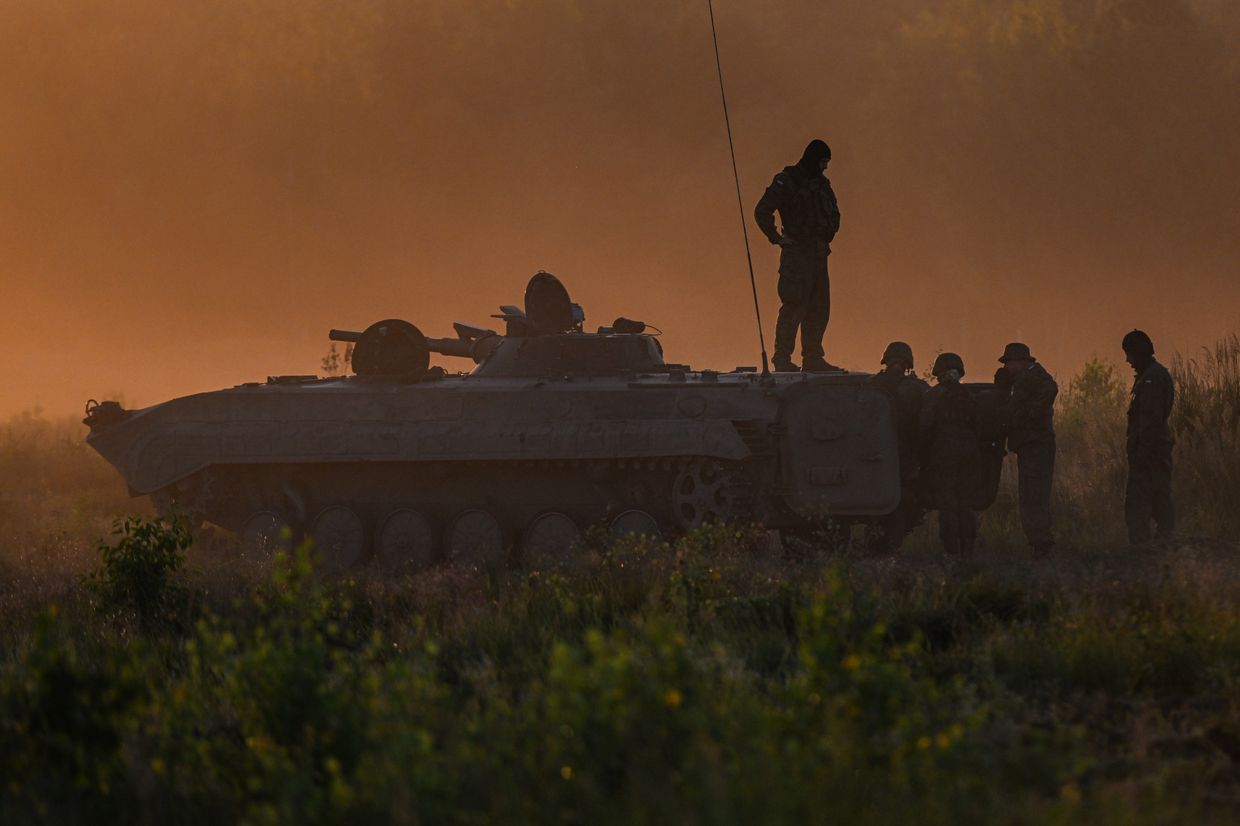
Czech authorities are considering the possibility of creating a similar Ukrainian Legion in their country or sending Czech instructors to help train legion members in Poland, Radio Prague International reported on July 29.
Another challenge could arise when the members of the privileged Ukrainian Legion interact with soldiers from regular units formed, trained, and based in Ukraine. Muzyka suggested that rotating Legion members back to Poland might negatively affect the morale of other Ukrainian troops who haven't been rotated for months or, in some cases, years.
Despite these challenges, Wojcik believes that if issues are addressed and the project gains support from other allies, the Ukrainian Legion could significantly reinforce the Ukrainian defense.
“Nothing is a game-changer. This is not going to raise 100,000 Ukrainians abroad. But if you could generate a handful of these brigades in the West, that would take some pressure off Ukraine trying to do this at home.”
Note from the author:
Hi there! It's Dinara Khalilova, the author of this article. If you want to see more reporting like this on Ukraine's efforts to defend against Russian aggression, please consider becoming a member of the Kyiv Independent. We won't be able to do it without your support!
